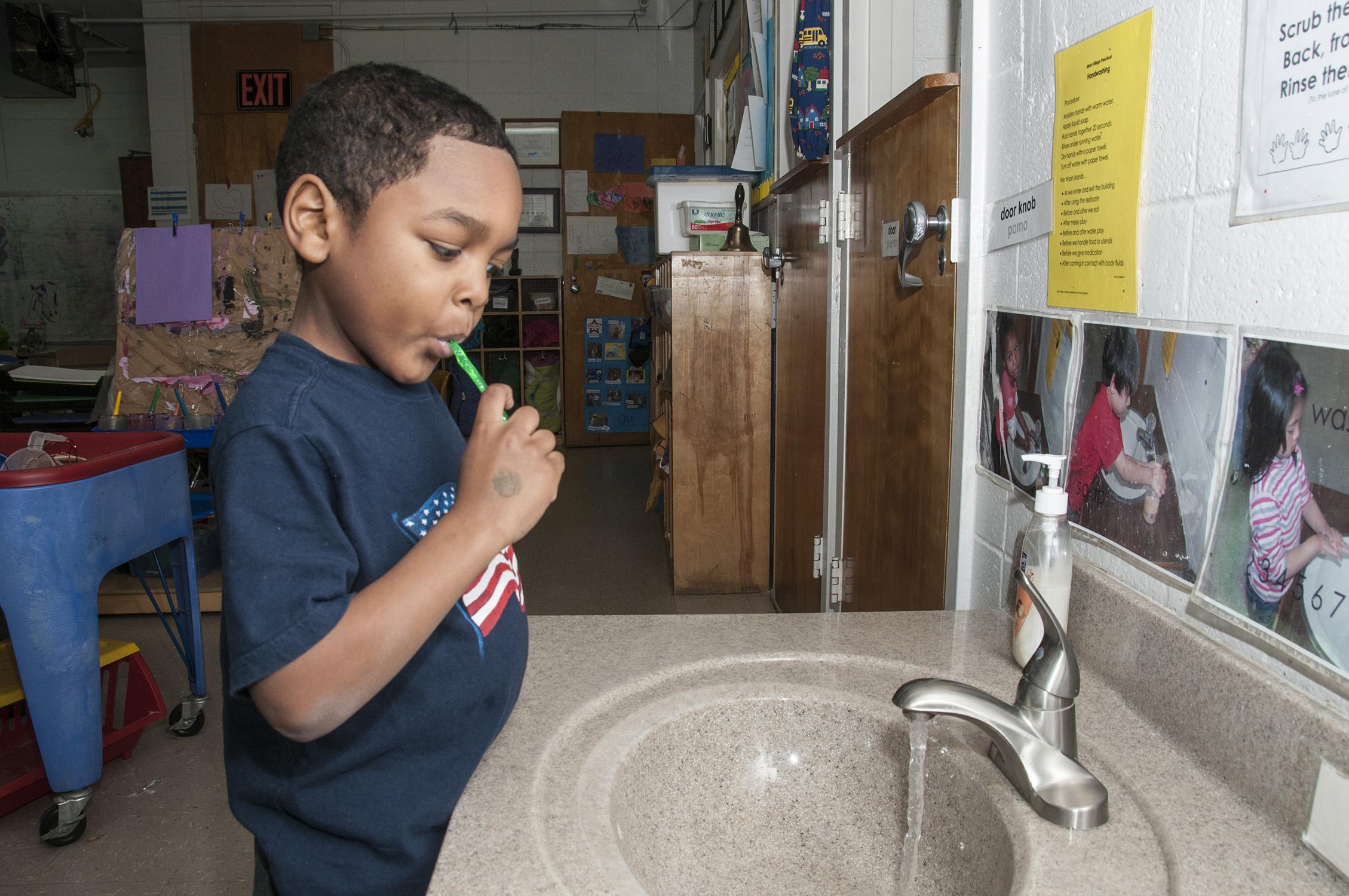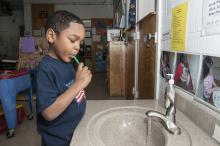Information Possibly Outdated
The information presented on this page was originally released on February 19, 2013. It may not be outdated, but please search our site for more current information. If you plan to quote or reference this information in a publication, please check with the Extension specialist or author before proceeding.
MSU programs promote children's dental health
By Kaitlyn Byrne
MSU Office of Ag Communications
MISSISSIPPI STATE – The path to healthy teeth begins in childhood, and two Mississippi State University programs are working to teach proper dental hygiene.
The Mississippi Childcare Resource and Referral Network, part of MSU’s Extension Service, trains childcare providers to teach healthy dental practices through the Cavity Free Kids program.
Sylvia Thomas is a field technical assistant nutrition adviser for the MSCCR&R Network’s Jackson-based program Allies for Quality Care. She said Cavity Free Kids’ main goal is to teach Mississippi’s childcare centers’ staffs about dental care and how to improve dental hygiene within the childcare programs.
Cavity Free Kids, founded in 2009, incorporates childcare provider training, classroom lesson plans and crafts to increase awareness about the importance of children’s dental care.
“Children are more susceptible to cavities than adults because of the lack of brushing habits and brushing appropriately, as well as eating too much sugar,” Thomas said. “Cavity Free Kids helps children learn to enjoy taking care of their teeth, and it teaches them that dentists are their friends and can help them have clean, healthy teeth.”
Carol Jones, director of MSU’s Aiken Village Preschool in Starkville, said teachers at her center practice healthy dental care by brushing the children’s teeth after breakfast and lunch.
“We brush twice a day, every single day, to get the children into the routine of taking care of their teeth,” she said. “Some of the kids never had experience with brushing their teeth until they started doing it here, so we really want to help develop this habit for them.”
At Aiken Village Preschool, the teachers follow a specific procedure when assisting the children with brushing, Jones said. Each child has a labeled toothbrush stored in a cabinet that allows the brushes to air-dry. The teachers put drops of toothpaste in paper cups for each child to apply individually to prevent contamination.
Teachers and children wash their hands before and after brushing teeth, and the toothbrushes never touch the counter or sink, Jones said. Brushes are replaced periodically, especially after illness.
Georgia Graham, a teacher at Aiken Village Preschool, said she thinks daily brushing has improved the children’s dental health habits and their fine motor skills.
“A lot of the kids were standoffish at first, but now many of them won’t go to sleep at night without brushing their teeth,” she said. “At this age they’re still developing motor skills, and using the toothbrushes frequently has helped them get better with using things like paintbrushes, as well.”
Graham said the preschool teaches a unit on health and safety, which includes a section on dental hygiene. She said dentists recommend parents assist with brushing children’s teeth until they are 10, so the preschool encourages parents to continue guiding the children with brushing teeth in the evening after dinner.
“We’re teaching the kids a skill at the preschool that the parents can continue to develop at home,” she said. “It’s important to be consistent and offer guidance to keep up the good hygiene.”
The MSCCR&R Network is funded by the Mississippi Department of Human Services’ Division of Early Childhood Care and Development.





